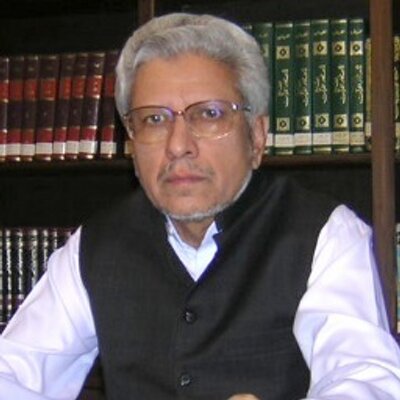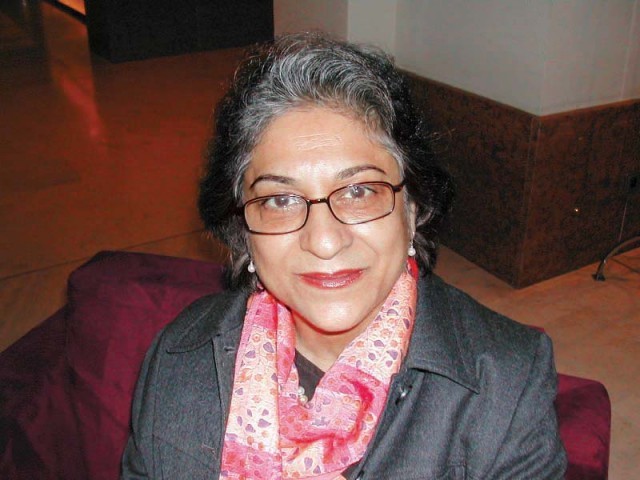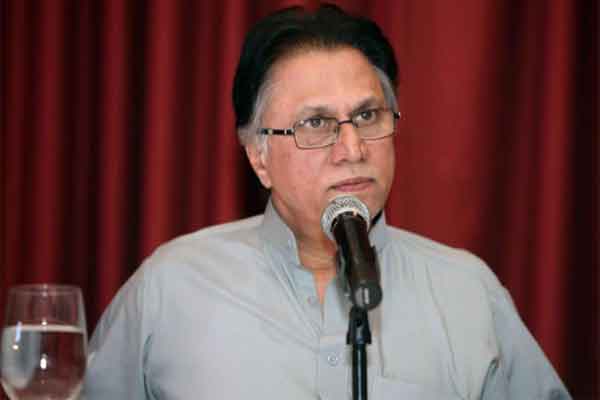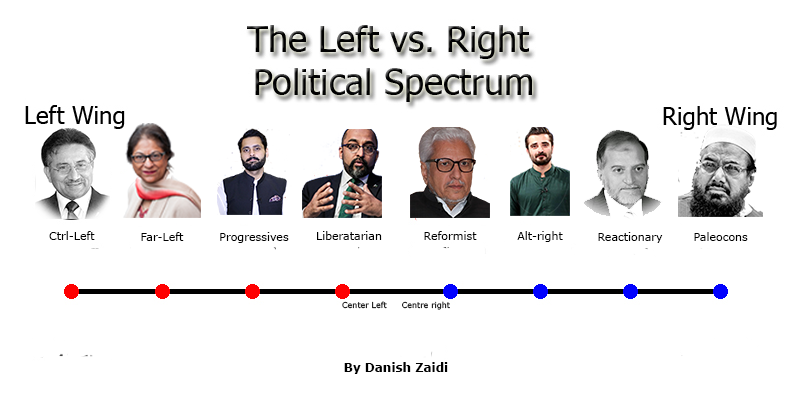It is often stated that both religious extremism, and extreme liberalism, are a menace for Pakistan. It shows sheer lack of knowledge on the part of those who treat political spectrum in Pakistan as a binary. A dispassionate analysis would tell that these terms don’t have firm basis in reality. Most of us lack abstract level thinking and lure ourselves into playing this zero sum game. We otherize people based on certain likes and retweets they do on social media, not realizing that both conservatism and liberalism form a spectrum converging at a center point. It is this fallacy of bipartisanship that drives our obsession with moderation – the belief that the pinnacle of appropriation lies at the center. This major lapse in judgement creates confusion, which in turn creates hatred for the ‘other’.
To help remove the ambiguities of fellow-Pakistanis, I have curated a list of ideologies on the social scale.
CONSERVATISM:
· Theocratic extremists/Paleo-conservatives

As the name goes, these are the bunch of people who advocate old and traditional way of life. They don’t embrace change so easily because of their greater inertia against new methods and practices. And they believe in enforcing ideas on others because of their false sense of righteousness. They consider it an individual’s right to impose ideas.
Examples: Taliban, Hafiz Saeed, Masood Azhar, Lashkar-e-Jhangvi.
· Reactionary (Ultra-conservatives)

The line between paleo-conservatives and reactionaries is pretty thin. Unlike paleocons, reactionaries often don’t come out open about their violent ideas against the state/people, because they fear backlash from the state. As they are part of mainstream parties or media groups, or uphold major key positions in similar fields, they resort to subtlety.
Examples: Maulana Fazl-ur-Rehman, Maulana Sherani, Orya Maqbool Jaan.
· Alt-right

This is a loose group of people who reject mainstream conservatism but still, by and large, adhere to conservative thought. They believe in steroidal form of nationalism and jingoism. The problem with this cohort of Pakistanis is that they are naysayers of religious extremism in Pakistan and react as if the problem is almost non-existent while pointing fingers on different atrocities committed by others around the globe specially if happening in Burma, Kashmir and Palestine.
Example: Hamza Ali Abbasi.
· Reformist

This group believe in reforms within religion to keep it in sync with the need of the time.
Examples: Javed Ahmad Ghamidi and Dr Ali Shariati
· Center right
These are the major portion of religious Pakistanis who have an inclination towards conservatism, but they don’t believe in imposing their ideas to others. They can be apolitical in nature or can easily be swayed by any political slogan that appeals to them.
LIBERALISM
· Center left
This lot of liberals is not very clear on issues (like gender issues) to form an alignment with any other liberal group. Like other liberals, they are open to new behaviour or opinions and willing to discard traditional values. Conservatives think that they are pseudo-liberals because of a lack of clarity on ideas. Unlike the popular notion, pseudo-liberal shouldn’t be a terminology. It just means that they have a difference of opinion within their ranks and with the larger liberal spectrum. They might support one cause and might not support the other because of lack of subject knowledge on the latter.
· Libertarians

This group of people uphold liberty as a core principle on one hand and on the other hand, they believe in the idea of patriotism (not nationalism, mind you) and ‘national interest’. They are inherently against the idea of a totalitarian state but give some room to high level matters of the state. They might support capital punishment out of necessity. Mosharraf Zaidi, presenter of a podcast How to Pakistan, can be categorised in this category.
· Liberal Democrats/Progressives

This cohort is more skeptical than believing when it comes to ideas. They would hardly believe in a thought, just because it is presented in folds of nationalism or patriotism. They are proponents of humanism more than any other thing. They believe all religion promote peace so boundaries of state are less important when it comes to humanity. They believe in the due process and only non-coercive means to address terrorism. Jibran Nasir, Raza Rumi and Beena Sarwar are few people who can be categorized in this stream of liberalism.
· Far-left (Left of the Left)

Far-left politics is the province of extra-governmental groups and those espousing are against their governments/establishment. They criticize government for every wrong act, it commits on the humanitarian ground. They are against capital punishment and especially in Pakistan, they are against drone attacks. Asma Jahangir and Madiha Tahir can be part of this group.
· Ctrl – Left

Ctrl-left is left group which believes in enforcing ideas to make peace in the society. They are liberals and are open to new ideas but they believe force is necessary to implement those ideas. But principal difference they have from their conservative counter-parts is that they believe that an individual cannot enforce ideas on people but it is the right of the state. In and of itself, liberalism cannot be fascist because then it will then become an ‘oxymoron’. It is a careful amalgamation of totalitarianism and liberalism. Pervez Musharraf and Hassan Nisar can lie in this category.
The spectrum can be little bit more clear, but can become complex, if economic dimension of the spectrum can be projected on the y-axis. Also, current spectrum’s relative distances are arbitrary and can entail far more ideological points in between. Furthermore, personalities given as examples can differ from each other on various points. It is for this very reason that it becomes quite arduous for some to understand this concept. And out of confusion, hatred kicks in.






